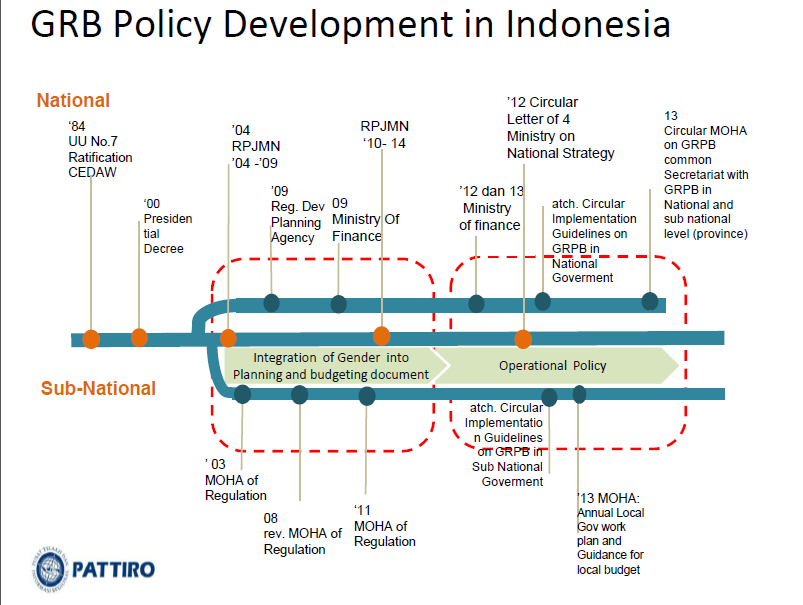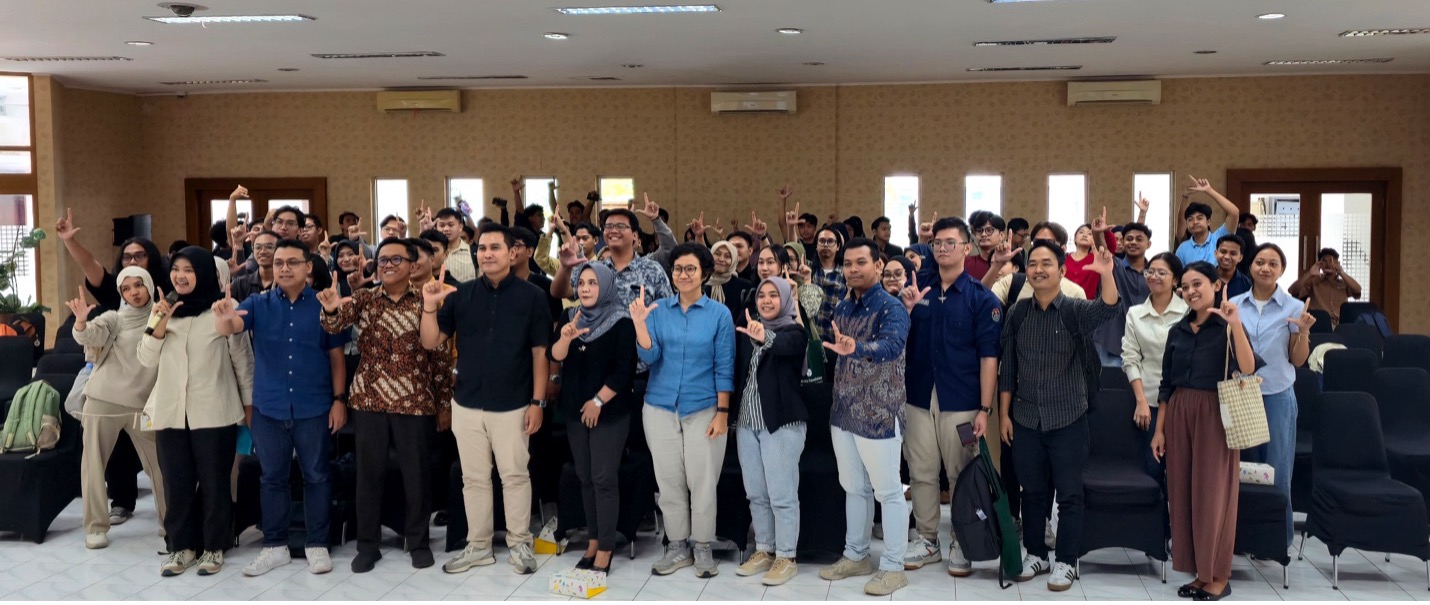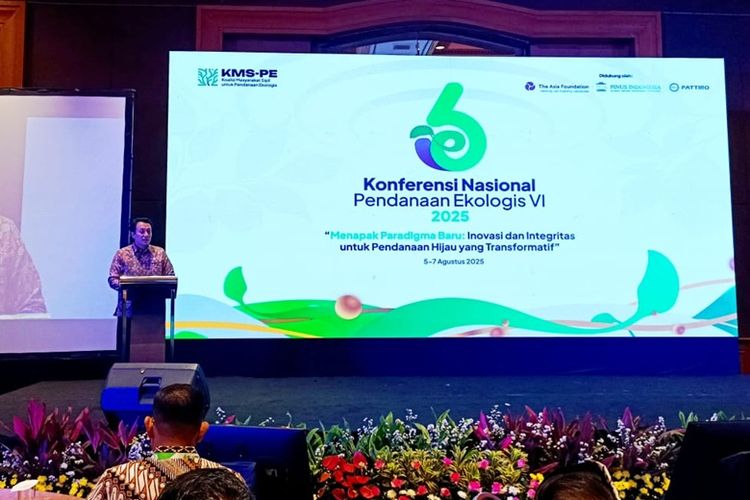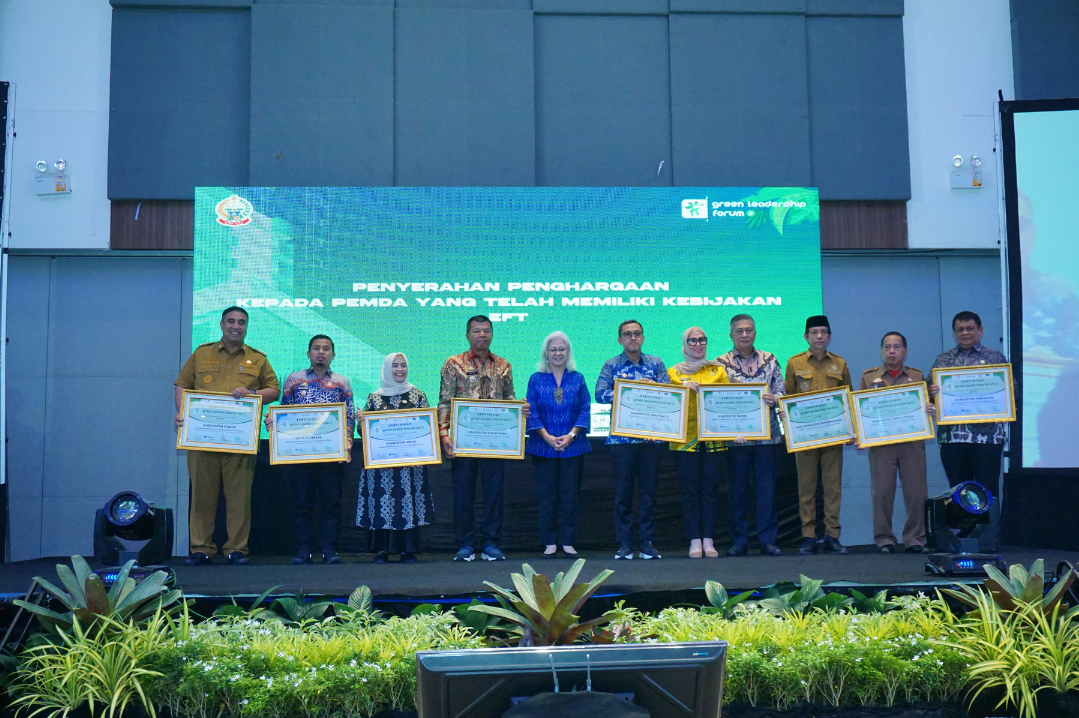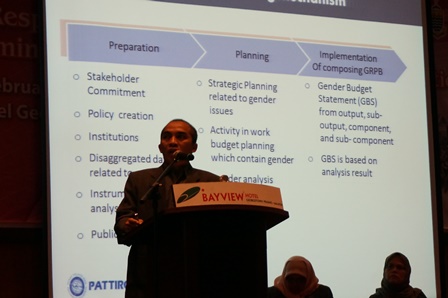 On 25 February 2014, Agus Salim, Program Manager of B3WP PATTIRO, spoke at the Asian Regional Conference of gender responsive budgeting in Penang, Malaysia. The international conference, titled Gender Responsive Budget Narratives: Transforming Institutions, Empowering Communities, was hosted by the Penang Women’s Development Cooperation (PWDC), in collaboration with the Penang State Government, two local authorities in Penang, and UN Woman.
On 25 February 2014, Agus Salim, Program Manager of B3WP PATTIRO, spoke at the Asian Regional Conference of gender responsive budgeting in Penang, Malaysia. The international conference, titled Gender Responsive Budget Narratives: Transforming Institutions, Empowering Communities, was hosted by the Penang Women’s Development Cooperation (PWDC), in collaboration with the Penang State Government, two local authorities in Penang, and UN Woman.
The PWDC is a state-funded agency which, in partnership with local authorities, has been responsible for the implementation ofthe Gender Responsive Budget Pilot Projects in Penang for the last 3 (three) years. By hosting the Asian regional conference, the PWDC created a vehicle with which to foster the sharing of stories and contribute to gender and participatory budgeting.
Following his return from Malaysia, when asked about the results of the conference, Agus Salim stated that “For PATTIRO, this forum is the right forum to introduce PATTIRO, as well as our contributions to GRPB [Gender Responsive Planning and Budgeting] at the national and sub-national level”. Furthermore, he suggested that “our efforts are more complete, because we do not only focus on budgeting, but also go to the level of planning”.
In his presentation, “Gender Responsive Budgeting: Institutionalization in the National and Sub-National Government in Indonesia”, Agus Salim outlined the historical development of GRPB policies in Indonesia. This history of GRPB has occurred in parallel, across two domains, the national and regional.
The history of GRPB in Indonesia began with the issuance of Law No. 7 of 1984 on the Ratification of CEDAW (Convention on the Elimination of All Forms of Discrimination Against Women). After being formalised through a presidential decree in 2000, GRPB began to be formally accepted and came into effect when accommodated into the National Medium Term Development Plan (RPJMN) in 2004. Thus beganintegration of gender into planning and budgeting at the national level. In the process, the integration of gender was followed by the sub-national governments.
Currently, the development of GRPB has allowed for a deepening of policy. No longer merely at the macro level, GRPB has entered the micro-policy level, that is, operational and technical policies.
The target of PATTIRO advocacy has been to pull the scope of the policy to a more operational level by, in the first instance, building trust with stakeholders in targeted ministries. With the success of this advocacy and the establishment of good relations, PATTIRO has been able to begin the next level of advocacy, policy design.
For Agus Salim, advocacy work based on partnership is most efective for establishing desired policy. In this, he has suggested, the Indonesian experience in advocacy work is more advanced and progressive than other countries in the Asian region.
“Therefore, it is natural that many other countries are interested to learn from PATTIRO. Especially the states that have recently entered an era of democracy” said Agus Salim.
To obtain the slide which were presented at the forum, please download here:

